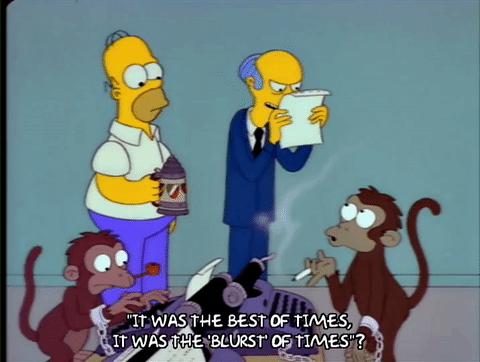I don’t think it changes it one way or the other really, just the axis where it’s wrong.
The universe doesn’t have infinite mass either, so infinite monkeys are just as problematic.
I don’t think it changes it one way or the other really, just the axis where it’s wrong.
The universe doesn’t have infinite mass either, so infinite monkeys are just as problematic.
This is the kind of speculation I like to hear.
Sure, but you can get a lot closer than 200k.
I’ve always seen that as a thought experiment. (See “perfectly spherical cows”) The exception, of course, is the Infinite Improbability Drive. This is both perfectly rational and a goal to be achieved.
Exactly. Which is why I don’t see the point of this paper. It was patently obvious that it’s not something real.
And the same sort of critique they want to apply can be applied to their paper. The time they have is a whole lot shorter than the heat death of the universe since the sun expansion is the (non-human involved) end of life. And even in the shorter time span, what about evolution? If you want to put real limits on a thought experiment, they apply to your critique of it as well.

Here is the actual paper:
A numerical evaluation of the Finite Monkeys Theorem
by Stephen Woodcock and Jay Falletta
https://www.sciencedirect.com/science/article/pii/S2773186324001014?via%3Dihub
Abstract
The Infinite Monkeys Theorem has long-established the eventual certainty of the complete works of William Shakespeare being reproduced by a monkey randomly pressing keys on a typewriter. This only considers the infinite limit, with either an infinite number of monkeys and/or an infinite time period of monkey labour. Here, we consider the Finite Monkeys Theorem and look at the probability of a given string being typed by one of a finite number of monkeys within a finite time allocation consistent with estimates for the lifespan of our universe. We also calculate the expected number of keystrokes until a target string would first be produced. Given the expected time until the heat death of the universe, we demonstrate that the widely-accepted conclusion from the Infinite Monkeys Theorem is, in fact, misleading in our finite universe. As such, this places the theorem in a class of probabilistic problems or paradoxes, including the St. Petersburg paradox, Zeno’s dichotomy paradox and the Ross–Littlewood paradox wherein the infinite-resource conclusions directly contradict those obtained when considering limited resources, however sizeable.
They might as well add Hilbert’s paradox of the Grand Hotel, which can be full and yet have room for more guests. Think I can get a paper by pointing out real hotels can’t do that? ![]()
Possibly, but I think further studies need to be conducted. In actual Grand Hotels. With a generous allowance for expenses.
I like how you can pretty much get the same information by reading the wikipedia page. Including how to calculate the likelihood of typing “banana”.
And that wikipedia page was only recently modified to have a single reference to this paper, completing the loop.
I had never heard of this syndrome before. Brains are weird.
Some fungi are capable of processes that appear to mirror certain aspects of brain function. The research team argues that P. velutina showed signs of basal cognition, or cognition at the cellular level in brained organisms. This relates to sensory functions (finding nutrients) and the processing of information (sending signals about where those nutrients are throughout the mycelium). More research on when and why they send these signals still needs to be done.
Does this mean fungi have a way of thinking? Though a network of fungi can function like the neurons of a brain in some senses, they do not literally think*. Let’s just hope that keeps them from plotting world domination.
*Narrator: “That’s just what they want us to think!”
“Plotting world domination”, as if fungi don’t already get everything in the end.
Which of the many Alpha Centauri quotes is best for this situation?